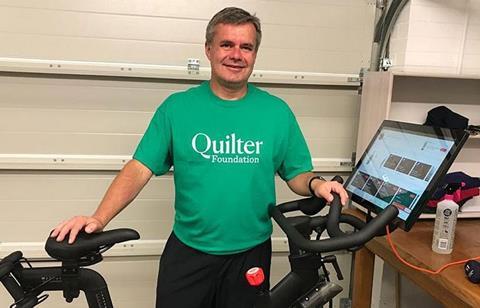
Quilter is a financial services organisation providing advice, investments and wealth management in the UK and internationally. It employs around 4,500 people across its hubs in London, Newcastle and Southampton, but also in smaller offices throughout the UK and overseas.
When lockdown was announced, employees’ health and wellbeing was a priority. Paul Hucknall, human resources director at Quilter, says: “We’d always focused on employee wellbeing, launching our Thrive programme to support mental, physical, emotional and financial wellbeing back in 2018,” he explains. “With everyone working from home during the pandemic, we had to consider how this would affect their wellbeing needs.”
Physical health was a primary consideration, with employees able to take home office equipment, such as a chair or screen, to ensure they could work comfortably. This was supplemented by an internal ordering system to enable employees to arrange delivery for any further kit they needed.
Hucknall also arranged a series of webinars to promote all aspects of wellbeing in lockdown. “As well as external experts, we got some of the senior and line managers involved in these, talking about how they were coping in lockdown,” he says.
“This also helped with the social element. For instance, our [chief finance officer] CFO, Mark Satchel (pictured), led a virtual cycle challenge, encouraging staff to work together to pedal over 11,000 miles to New Zealand.”
Lockdown also highlighted the importance of mental health, with Quilter partnering with mental health organisation, Spill, to provide additional support to employees. “This enables them to ask a qualified therapist about anything that might be worrying them and get personalised feedback,” explains Hucknall. “It can also flow into counselling or other support where necessary.” As employees gradually return to the office over the next year or so, the changes in the way people work will affect wellbeing.
“There will be benefits such as no commute and more time with their families but also challenges such as loneliness and isolation,” says Hucknall. “We’re exploring the future of work and how we can ensure employees benefit as much as possible from this cultural shift.”
Read also:
What long-term health and wellbeing lessons can employers learn from the Covid-19 pandemic?
Homa Wilson: Employers need to be aware of the mental wellbeing pressures caused by the pandemic
















